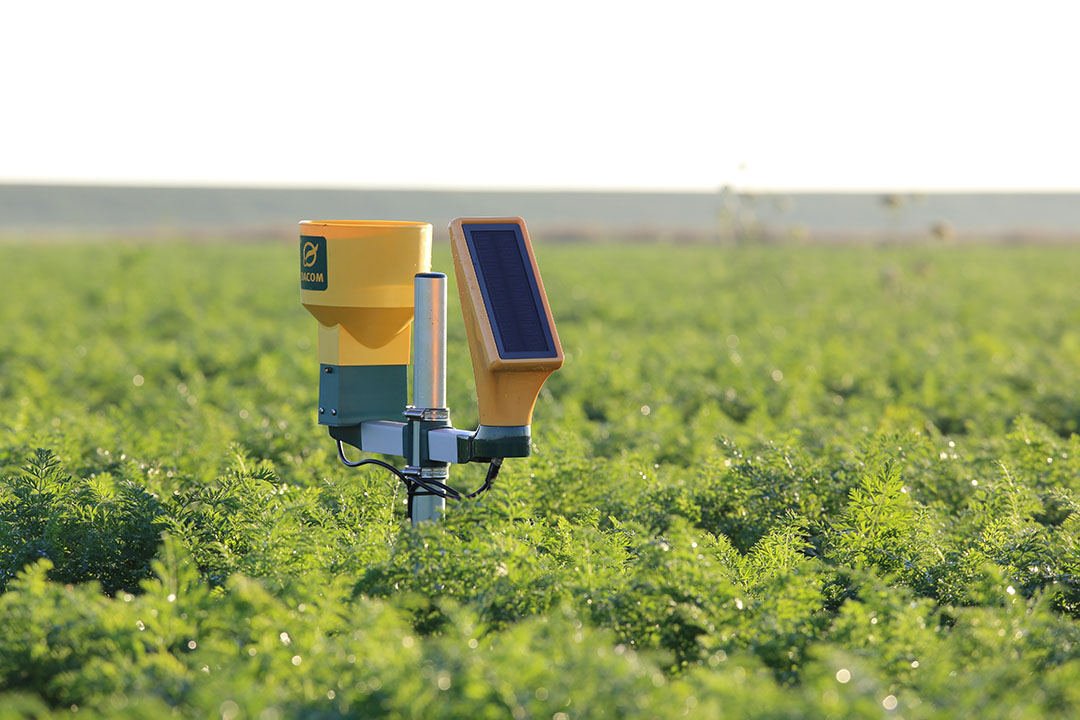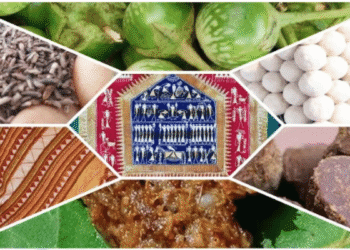Artificial Intelligence (AI) has been making significant strides in recent years and is rapidly transforming numerous industries, including agriculture. The use of AI in agriculture is helping farmers to improve crop yields, reduce costs, and minimize the impact of their operations on the environment.
The use of artificial intelligence (AI) in agriculture is aimed at improving the productivity, efficiency, and sustainability of the industry. AI technologies are used to gather, analyze, and interpret large amounts of data related to crop growth, soil conditions, weather patterns, and livestock health.

This information is then used to optimize crop management, improve soil management, and minimize the use of inputs like fertilizer and water. AI is also used in livestock management to monitor animal health, detect early signs of disease, and improve supply chain management. The goal of AI in agriculture is to help farmers increase yields, reduce costs, and ensure food production is sustainable, efficient, and of the highest quality.
Applications of AI in Agriculture
Precision Agriculture
Precision agriculture is an approach to farming that uses technology to optimize the management of crops and other aspects of farming operations. AI is playing a significant role in precision agriculture by helping farmers to gather, analyze, and interpret large amounts of data, such as weather conditions, soil quality, and plant growth. This information is then used to optimize planting and harvest schedules, improve soil management, and reduce the use of inputs such as fertilizer and water.
Crop Monitoring and Prediction
Crop monitoring and prediction is another application of AI in agriculture that is helping farmers to improve the productivity of their operations. By using computer vision and machine learning algorithms, AI systems can analyze images of crops and provide farmers with real-time information about crop health, growth rates, and yield potential. This information can then be used to make informed decisions about watering, fertilizing, and other aspects of crop management.
Livestock Management
AI is also playing a significant role in livestock management. By using wearable devices and other sensors, AI systems can monitor the health and well-being of animals in real-time and provide farmers with valuable insights and recommendations. For example, AI systems can detect changes in an animal’s behavior that may indicate a health issue, such as lameness or an infection, and provide farmers with recommendations for treatment.
Supply Chain Management
In addition to improving crop and livestock management, AI is also playing a role in supply chain management. AI systems can analyze data about the demand for food products, logistics, and other aspects of the food supply chain to optimize the distribution of products and reduce waste.
Potential Impact of AI on Agriculture
The potential impact of artificial intelligence (AI) on agriculture is vast and far-reaching. The use of AI in agriculture can help farmers to make more informed decisions, improve efficiency, and enhance the sustainability of food production.
Here are some of the key ways that AI is expected to impact the agricultural industry:
- Improved Crop Management: AI can be used to gather and analyze large amounts of data related to crop growth, soil conditions, weather patterns, and other factors that impact crop yields. This information can be used to make more informed decisions about planting and harvesting, as well as to optimize the use of inputs like fertilizer, water, and pesticides.
- Increased Yields: By using AI to gather and analyze data on crop growth and soil conditions, farmers can improve their understanding of the factors that impact crop yields. This can help them to make more informed decisions about planting and harvesting, and ultimately lead to increased yields.
- Reduced Costs: AI can help farmers to minimize the use of inputs like fertilizer, water, and pesticides, as well as to improve the efficiency of their operations. This can help to reduce costs and increase profitability.
- Enhanced Sustainability: By using AI to optimize the use of inputs like fertilizer and water, farmers can help to reduce the environmental impact of food production. Additionally, AI can be used to monitor soil health, water quality, and other factors that impact sustainability, which can help farmers to make more informed decisions about land management.
- Livestock Management: AI can be used in livestock management to monitor animal health, detect early signs of disease, and improve supply chain management. This can help to reduce the cost of animal health care and improve the efficiency of livestock operations.
- Predictive Analytics: AI can be used to analyze data on crop and livestock production to make predictions about future trends and market conditions. This information can help farmers to make more informed decisions about planting, harvesting, and livestock management, and can also help the agricultural industry to better plan for future market demands.
- Improved Decision-Making: By using AI to gather and analyze large amounts of data, farmers can make more informed decisions about crop and livestock management. This can help to improve the efficiency of their operations and ultimately lead to increased yields and reduced costs.
Despite these potential benefits, there are also potential challenges associated with the widespread adoption of AI in agriculture.

For example, there is a risk that AI systems may be used to automate jobs traditionally performed by farmers, which could have a negative impact on rural communities and the agricultural workforce.
Additionally, the use of AI in agriculture raises questions about the ownership and control of data, as well as the ethical implications of using AI to optimize crop and livestock management.
Conclusion
In conclusion, AI is transforming the agriculture industry by helping farmers to improve the productivity of their operations, reduce costs, and minimize the impact of their operations on the environment. With continued advancements in AI technology, we can expect to see further growth and innovation in the industry, which will bring additional benefits to farmers and consumers alike.
However, there are also potential challenges associated with the widespread adoption of AI in agriculture. For example, there is a risk that AI systems may be used to automate jobs traditionally performed by farmers, which could have a negative impact on rural communities and the agricultural workforce. Additionally, the use of AI in agriculture raises questions about the ownership and control of data, as well as the ethical implications of using AI to optimize crop and livestock management.
Despite these challenges, the potential benefits of AI in agriculture are significant, and it is likely that the industry will continue to embrace this technology in the coming years. As AI continues to evolve and become more sophisticated, farmers will be better equipped to meet the demands of an ever-growing global population and ensure that food production is sustainable, efficient, and of the highest quality.









